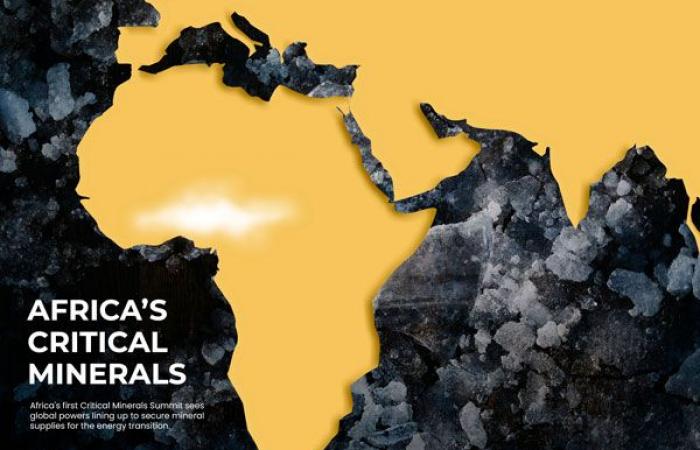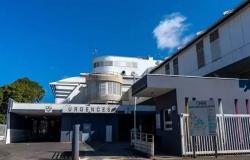
The Critical Minerals Africa conference, organized in Cape Town by Energy Capital & Power (ECP), is changing its name to Africa Mining Week (AMW). This name change reflects the increasing integration of the continent’s energy and mining sectors and seeks to promote a culture of collaboration between these strategic areas. Morocco intends to participate in this event, Barlamane.com learned from a source close to the matter.
This meeting, lasting three days, will be held from October 1 to 3, 2025 at the Cape Town International Conference Center. It will provide a unique opportunity for Africa’s energy and mining industries to meet and strike deals under one roof. The African mining industry is on track to reach a market value of $135 billion by the end of 2027, with a compound annual growth rate of 5.6%. This development is driven by growing demand, enabling government policies and the adoption of advanced mining technologies. It constitutes a catalyst for the overall economic development of the continent.
The AMW aspires to become an interactive platform that strengthens Africa’s position in the global mining and energy value chains. Africa’s rich mineral resources are undeniable: the continent accounts for approximately 73.3% of global cobalt production, 65.2% of manganese production, 43.3% of chrome and 43.7% of diamonds. . Additionally, Africa holds a leading position in the supply of platinum group metals, gold and phosphate, with significant growth potential for minerals such as bauxite, copper, iron ore, uranium, lithium and coal. The continent’s appeal lies in its diversity of resources, its history as a reliable global supplier and its pro-investment policies that encourage M&A transactions as well as long-term investments.
Little exploited resources
-At the same time, Africa’s energy sector is experiencing accelerated development. Considered one of the last exploration territories for oil and gas, the continent is beginning to fully exploit the potential of its offshore and onshore hydrocarbon markets. Major discoveries made in Namibia, Zimbabwe, Ivory Coast, Angola, Uganda, Senegal and other countries highlight the considerable potential of still underexplored markets. Simultaneously, the renewable energy and power sectors are growing rapidly, as global partners step up support for projects in solar, wind, green hydrogen and other related sectors . South Africa aims to develop a green hydrogen economy, Ethiopia launches large hydroelectric projects, Mauritania plans GW-scale hydrogen projects, while Morocco emerges as a major energy producer solar. These projects demonstrate the immense potential available to energy companies in Africa.
“Many natural and mineral resources remain underexploited, providing a strategic opportunity for local and international players to collaborate and invest in these sectors. The energy and mining industries cannot evolve in isolation; intrinsically linked, these two sectors will progress more quickly if true intersectoral collaboration is put in place. It is precisely in this context that the AMW conference plays a key role.report the organizers of the event.
For them, “the objective is to confirm Africa’s position in the global value chains of the mining and energy sectors. Running alongside AEW – Africa’s leading energy investment platform – the event strategically brings together the two sectors, allowing participants to explore synergies, share knowledge and identify joint opportunities to growth and development. The AMW will focus on leveraging the continent’s resources, encourage high value-added investments and foster mergers and acquisitions activity, while highlighting projects and financing opportunities capable of generating high returns for investors. foreigners.” They conclude: “What Africa needs is more investment, especially in strategic sectors such as energy and mining. The continent’s resources have the capacity to redefine global supply chains. With supportive policies, untapped deposits and strong local partners, there has never been a better time to invest in African projects.”





